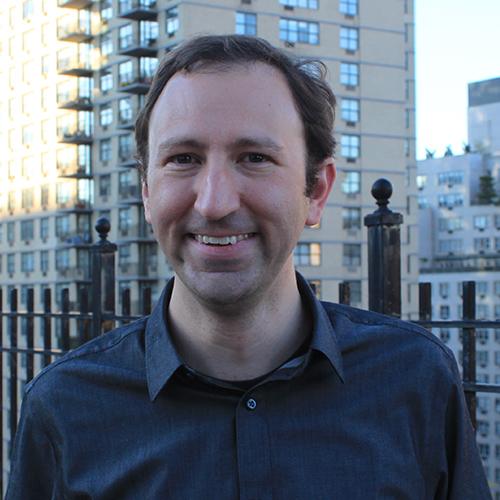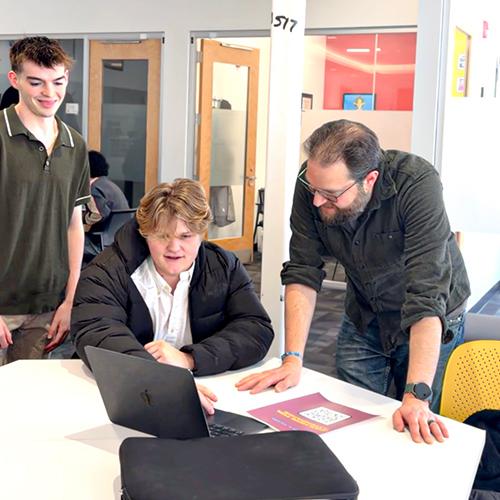Joshua K. Leon, Ph.D.
Professor of Political Science
Chair, Political Science Department

- Email:
- jleon@iona.edu
Degrees:
- Ph.D., Political Science, Temple University, 2010
- M.A., International Affairs, California State University, Sacramento, 2004
Joshua K. Leon teaches international relations and comparative courses in Political Science, and teaches on the politics and culture of New York City in Iona's freshman seminar program. He was awarded the 2022-23 Robert David Lion Gardiner Fellow at New-York Historical Society to research his next book, New York 1860. He has taught at Villanova, Temple and Drexel Universities.
His latest book is called World Cities in History: Urban Networks From Ancient Mesopotamia to the Dutch Empire,coming soon from Cambridge University Press. The book offers vivid detail on world cities throughout history, showing how urban networks shaped city life over 5,000 years of urbanization.
He is currently working on another manuscript called New York 1860: City on a Precipice,which is under contract with Columbia University Press.
Book:
- Joshua K. Leon. World Cities in History: Urban Networks From Ancient Mesopotamia to the Dutch Empire(Forthcoming, Cambridge University Press).
- Joshua K. Leon. The Rise of Global Health: The Evolution of Effective Collective Action(Albany: SUNY Press, 2016).
Manuscripts in Progress:
- New York 1860: City on a Precipice. Received fellowship and grant at the New-York Historical Society for 2022-23. Under contract with Columbia University Press.
Articles:
- “Global Cities in Analog: Modernism in Intercity Relations, 1900-1940, Journal of Urban History (first published August 11, 2021).
- “The Global Governance of Housing: 1945-2016,” Planning Perspectives. August 2020.
- “Global Cities at any Cost: Resisting Municipal Mercantilism,” City 21 (1) March 2017.
- “The Role of Global Cities in Land Grabs,” Third World Quarterly 36 (2) March 2015.
- “Why is the World Bank Financing Forced Evictions?” Peace Review 26 (2) June 2014.
- “Confronting Catastrophe: Norms, Efficiency and the Evolution of the AIDS Battle in the UN.” Cambridge Review of International Affairs 24 (3) September 2011.
- “Perspectives on Chinese Urbanization.” Cities 28 (3) June 2011.
Selected popular writing:
- “Telecommuting and the Post-Pandemic City,” The Progressive (May 27, 2021).
- “Nations Fight Extreme Patenting to Ensure Access to COVID-19 Relief,” The Progressive (May 19, 2020).
- “The Pandemic and Poor Countries,” The Progressive (March 30, 2020), syndicated for Tribune News Service and MSN News.
- “House of Cards: Ben Carson Builds of HUD’s Long Shaky Foundation,” The Progressive (June/July, 2018). Cover feature.
- “Sanctuary Cities in an Age of Resistance,” The Progressive (March, 2017). Cover feature.
- “Beyond the ‘World of 70′: Inequality and the 2030 Development Goals,” Dissent (December 17, 2013).
- “Make Way for High Rises: Who Benefits From Slum Demolitions in Mumbai?” Dissent (March 13, 2013).
Joshua K. Leon is Professor of Political Science and International Studies at Iona University. He was awarded the 2022-23 Robert David Lion Gardiner Fellow at New-York Historical Society to research his next book, New York 1860.
His latest book is called World Cities in History: Urban Networks From Ancient Mesopotamia to the Dutch Empire, coming in December from Cambridge University Press. It has been called “the definitive worldwide analysis of pre-industrial cities.”
World Cities in History explores 6,000 years of urban networks and the politics that drove them, from Uruk in the fourth millennium BCE to Amsterdam’s seventeenth-century ‘golden age.’ He provides a fresh, interdisciplinary reading of significant periods in history, showing how global networks have shaped everyday life. Alongside grand architecture, art and literature, these extraordinary places also innovated ways to exert control over far-flung hinterlands, the labor of their citizens, and rigid class, race and gender pides. Asking what it meant for ordinary people to live in Athens, Rome, Chang’an, or Baghdad – those who built and fed these cities, not just their rulers – he offers one of the few fully rendered applications of world cities theory to historical cases. The result is not only vividly detailed and accessible, but an intriguing and theoretically original contribution to urban history. As one critic pointed out, the book is an “invigorating comparative grand tour of ‘world cities’ over the past five thousand years which is sure to spark much debate.”
He is currently working on another manuscript called New York 1860: City on a Precipice, which is under contract with Columbia University Press. He recently spoke on it for the New-York Historical Society.
His last book, The Rise of Global Health: The Evolution of Effective Collective Action, was released in 2015, with a paperback release in 2016. The book analyzes how major actors such as the World Health Organization and World Bank fostered an expanded global health regime, aggressively addressing the health related aspects of globalization.
A doctorate in Political Science, he writes on urban history, international relations, and development. He has recently written for venues including The Chicago Tribune, The Progressive, Dissent, Third World Quarterly, City, Journal of Urban History, Planning Perspectives, Metropolis, Peace Review, The China Beat, Cities, Brooklyn Rail, Monthly Review, The Normal School, Asia Times, Foreign Policy in Focus, Arch Daily, Urban Omnibus, and Cambridge Review of International Affairs. He was author of the “World Watch” column for Next City from 2008-2011. In 2010, he covered the Shanghai World Expo for Next City magazine and Foreign Policy In Focus. He has also taught at Villanova, Temple and Drexel Universities. He lives in Manhattan.
- Senior Seminar: Land, Power, and Politics
- The Politics of Global Health
- The Politics of Global Development
- Global Cities and the Environment
- Freshman Seminar: Politics of New York City
- Introduction to American Government
- Introduction to Global Politics
- Political Science Capstone
- Political Science Research Methods
- The Public Policy Process
- International Politics in Film
- Contemporary Global Politics


